CREAF and Javier Royo launch #insciencetoo, a campaign to highlight gender inequality in science
“Ah, right, so you’re in charge?" The question and the look of surprise speak for themselves. The researcher cannot believe what he has just found out: that the leader of the new international research project he is taking part in is a young woman. This real-life experience and others like it have prompted a campaign with the slogan“It happens in science too”, which CREAF is set to launch this week to mark the International Day of Women and Girls in Science. The campaign features a collection of satirical cartoons, drawn by Javier Royo, which represent different situations that involve gender inequality and are all too common in the world of science. With the hashtag #insciencetoo reinforcing its message, each cartoon is an invitation to men, women and research centres to join the debate and raise awareness of the preposterous (yet genuine) situations that occur in science.
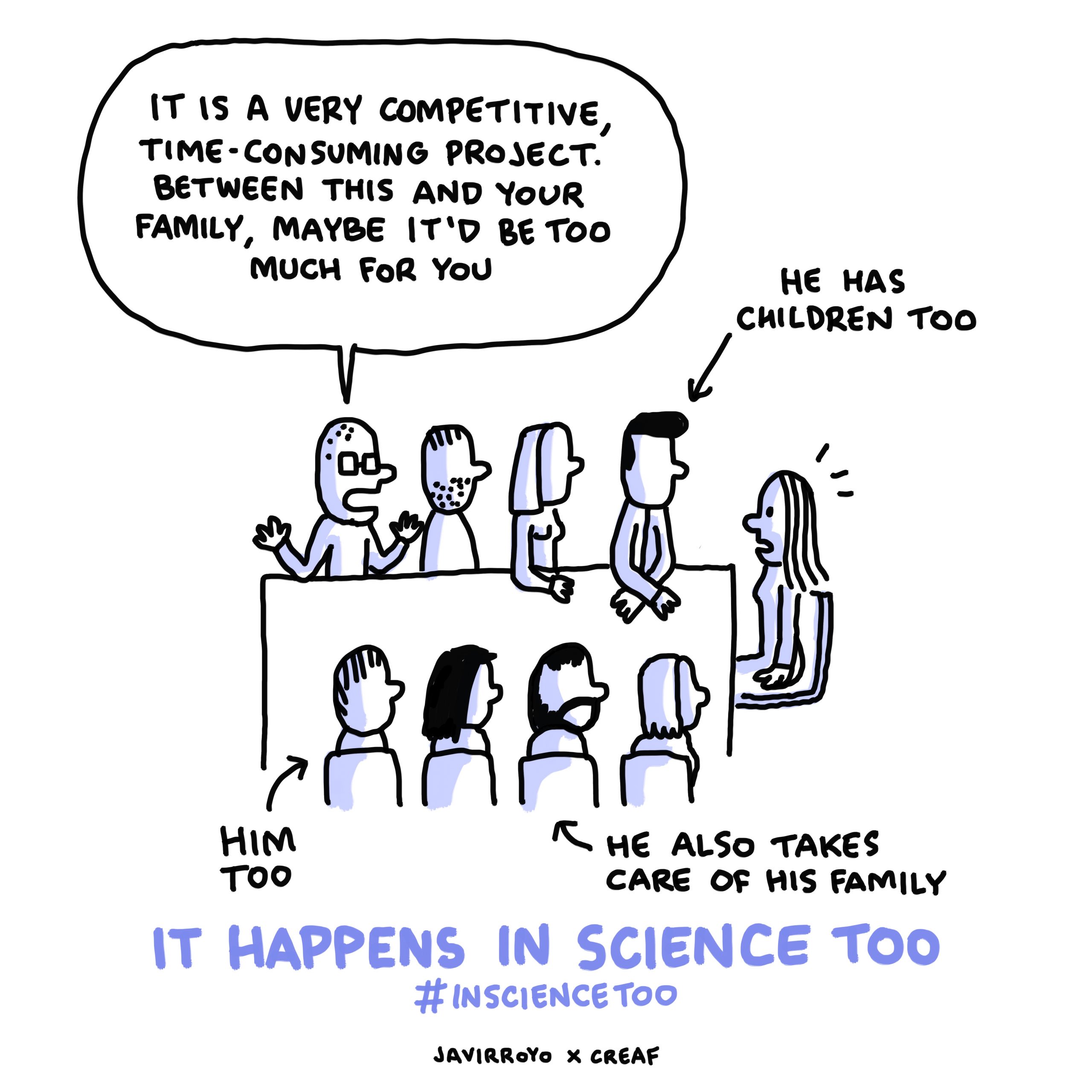
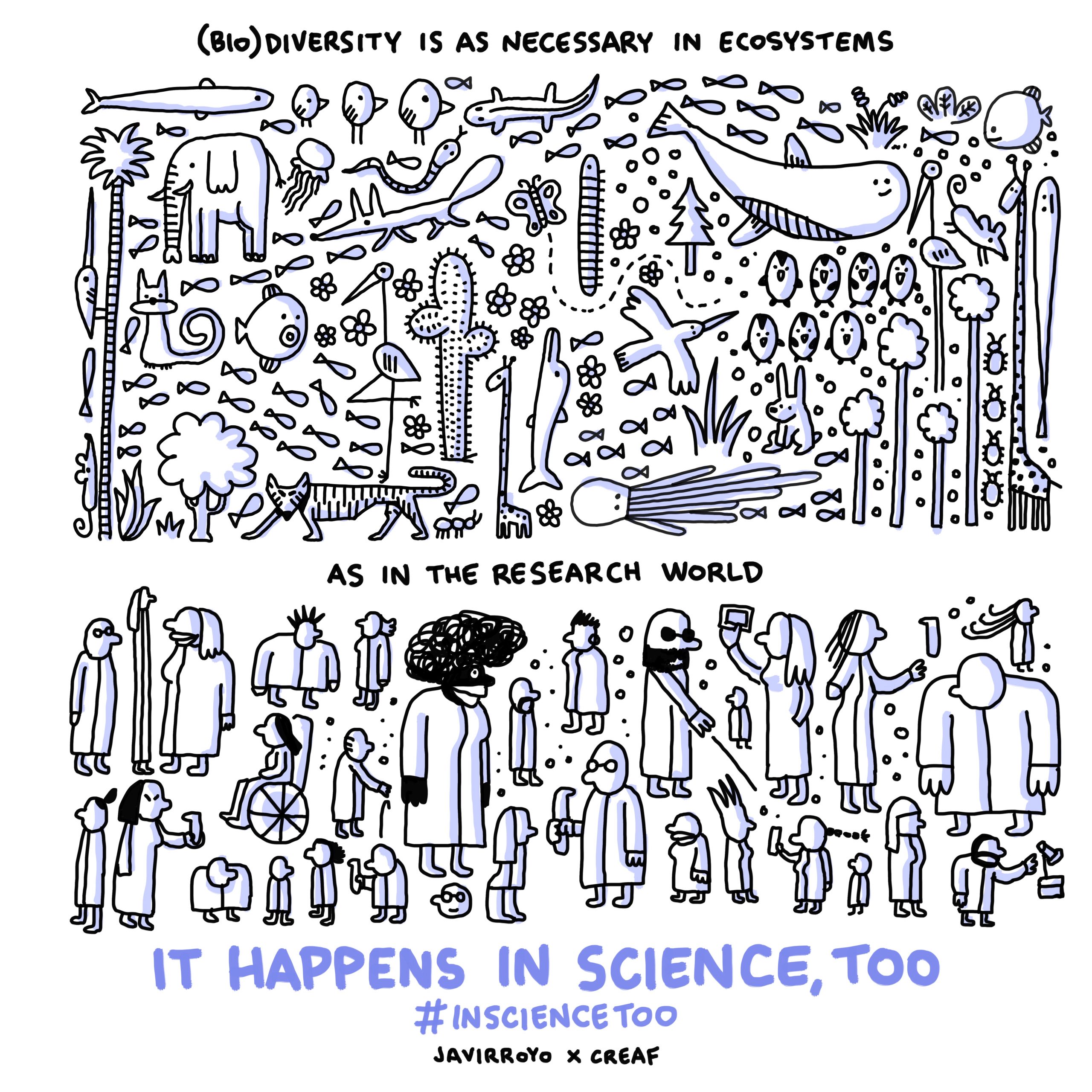
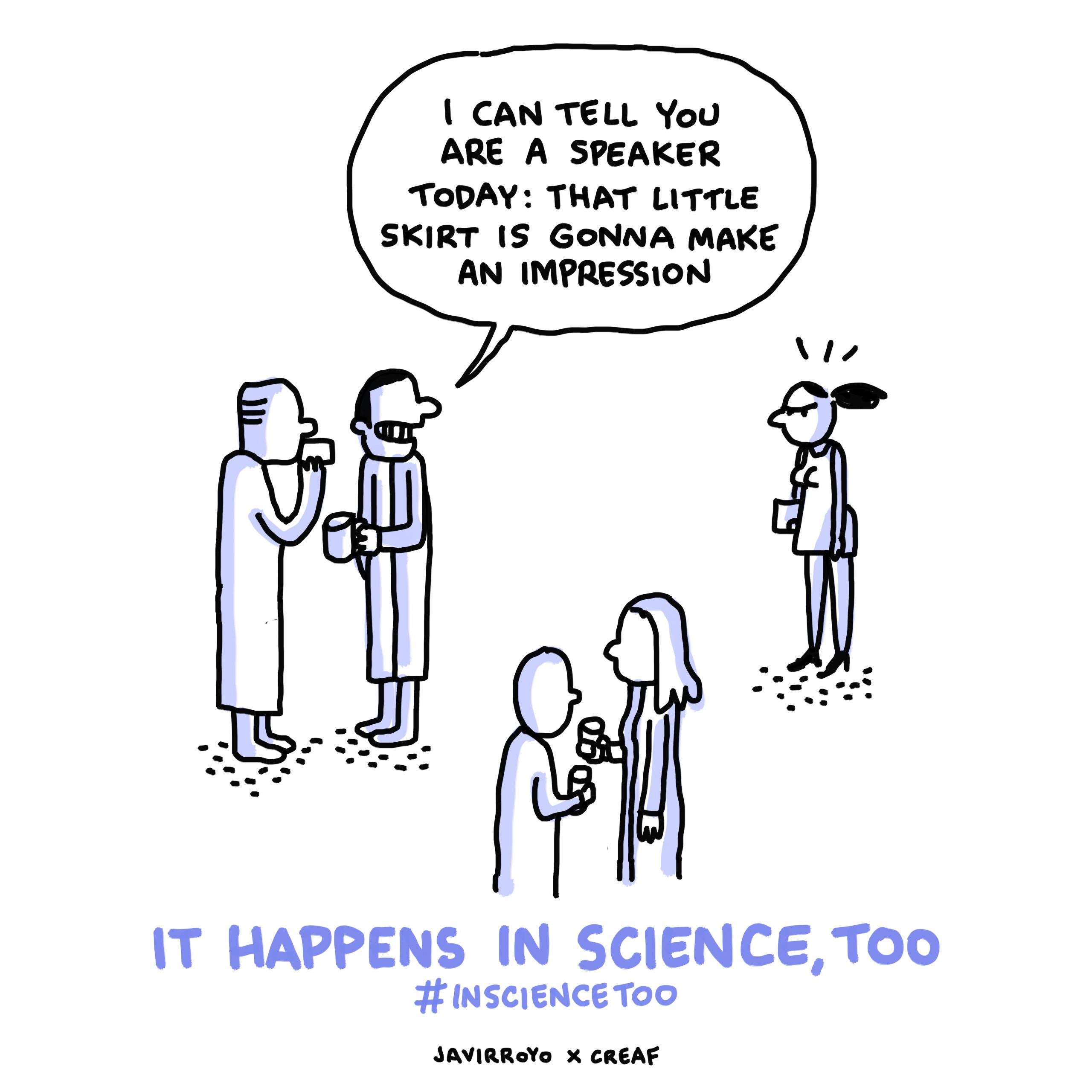
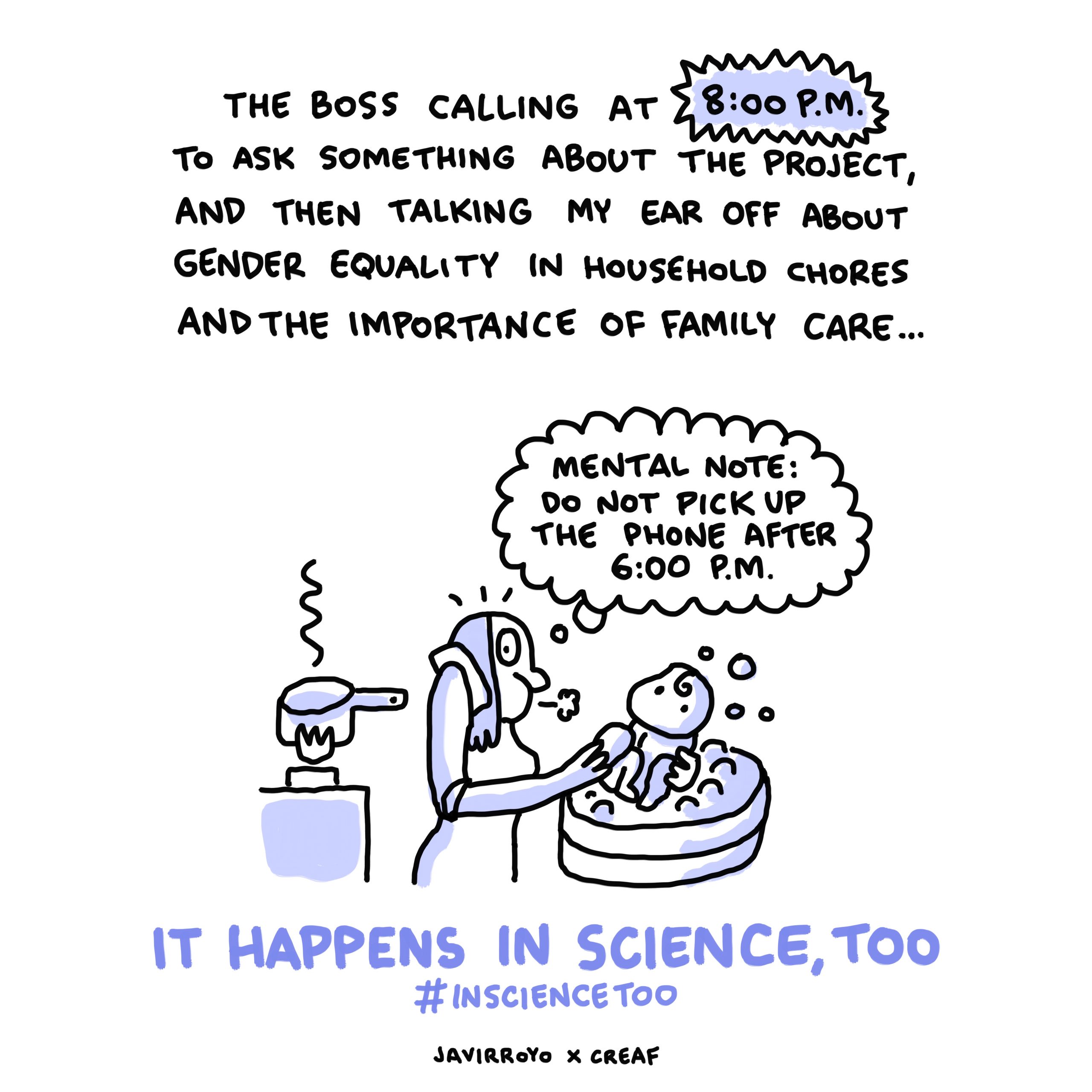
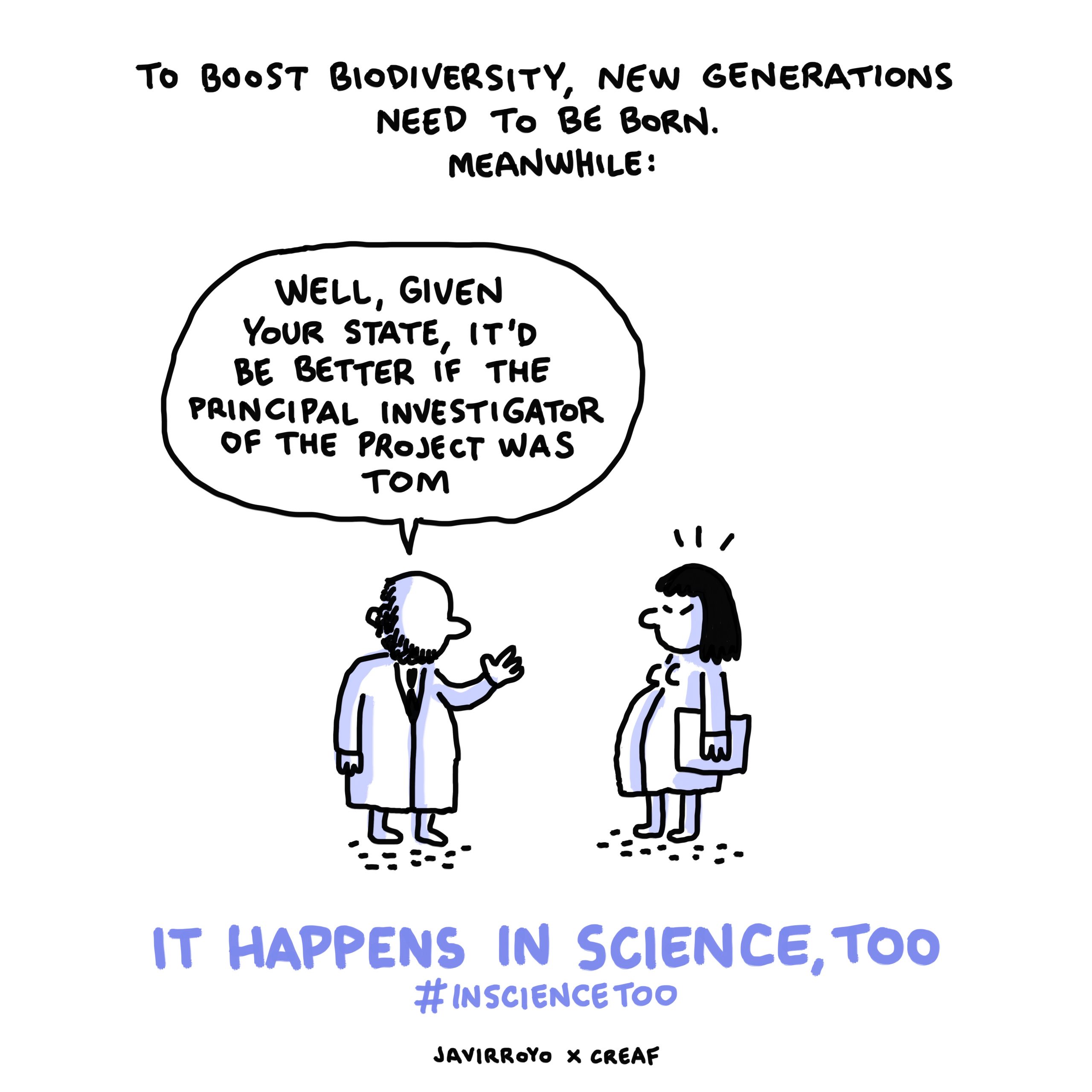
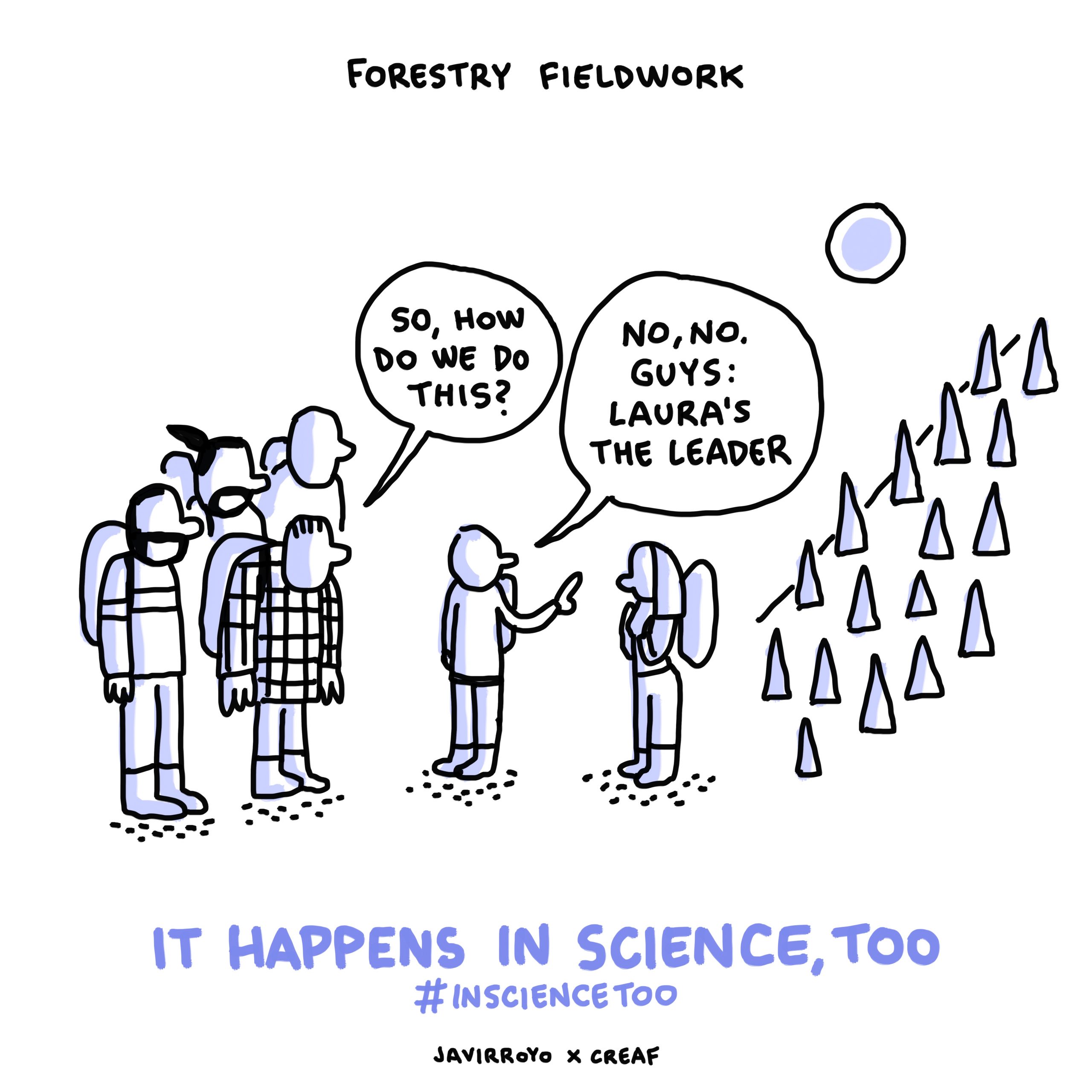
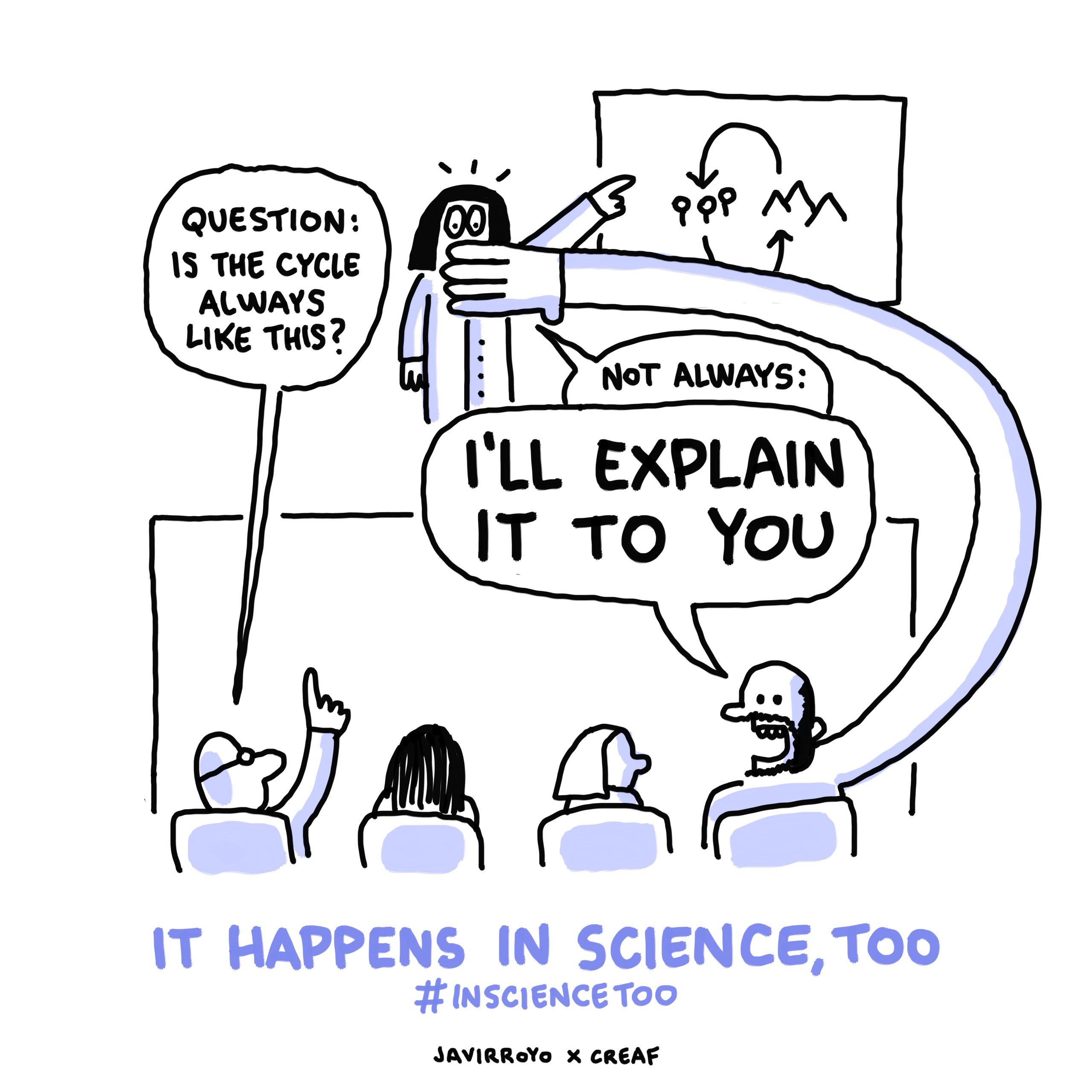
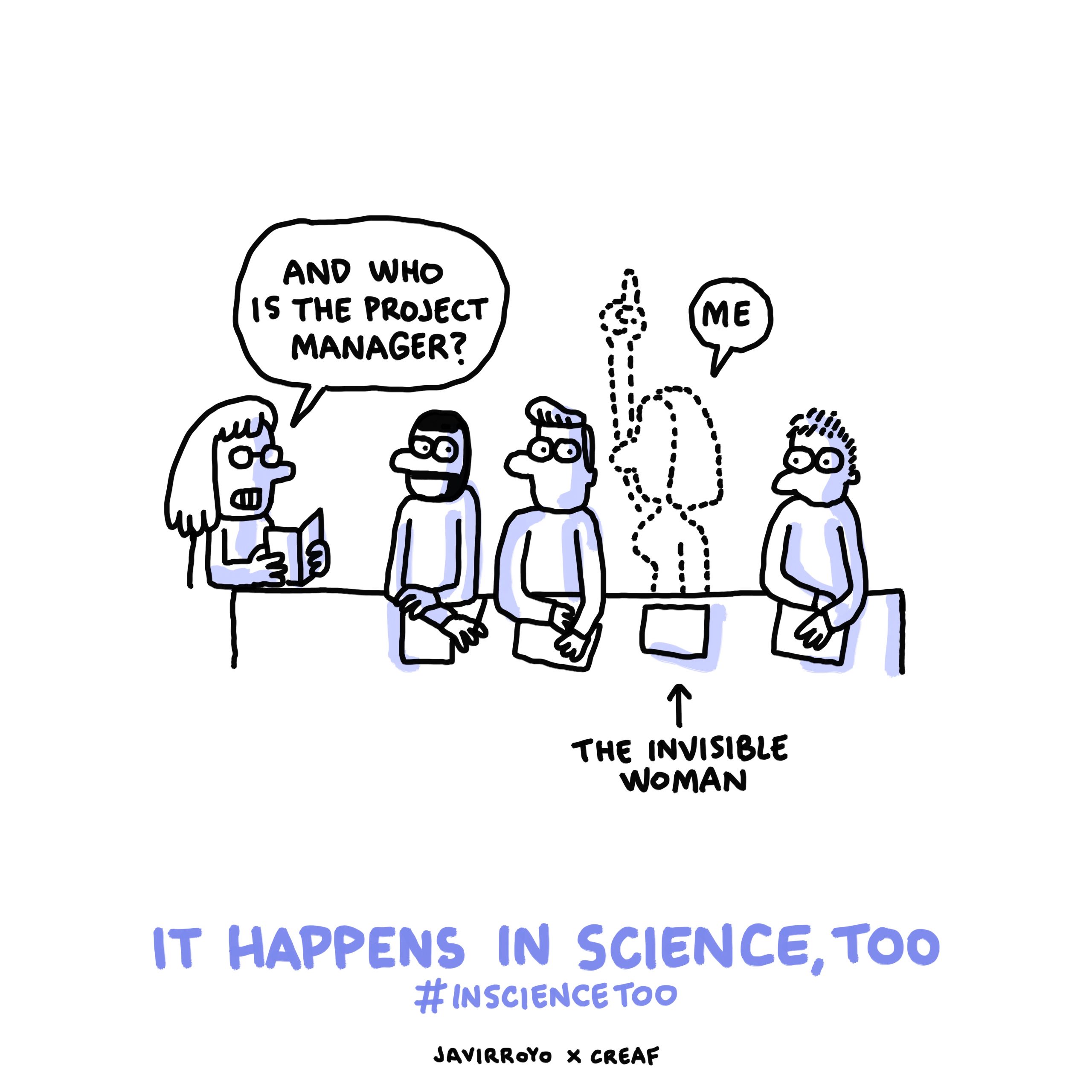
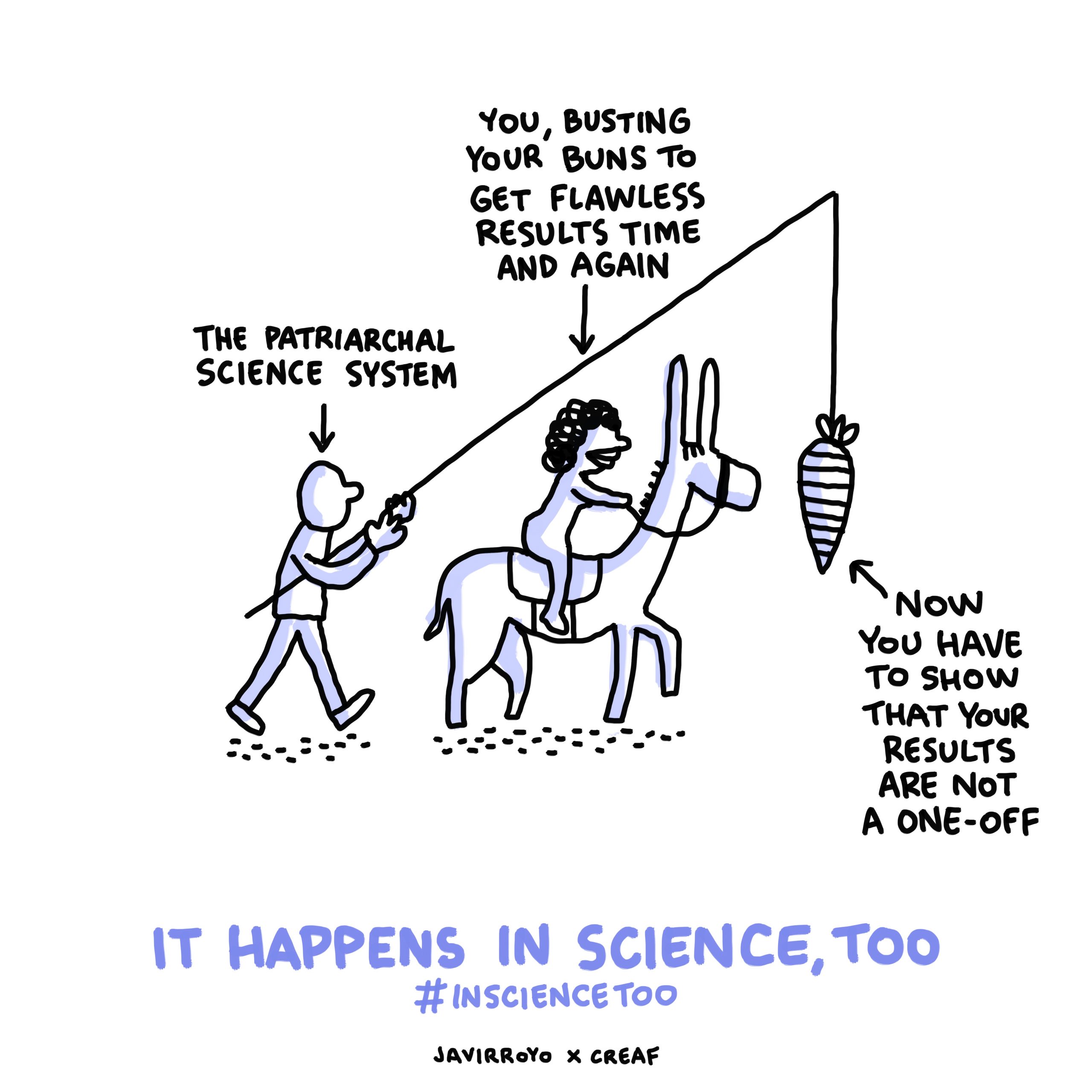
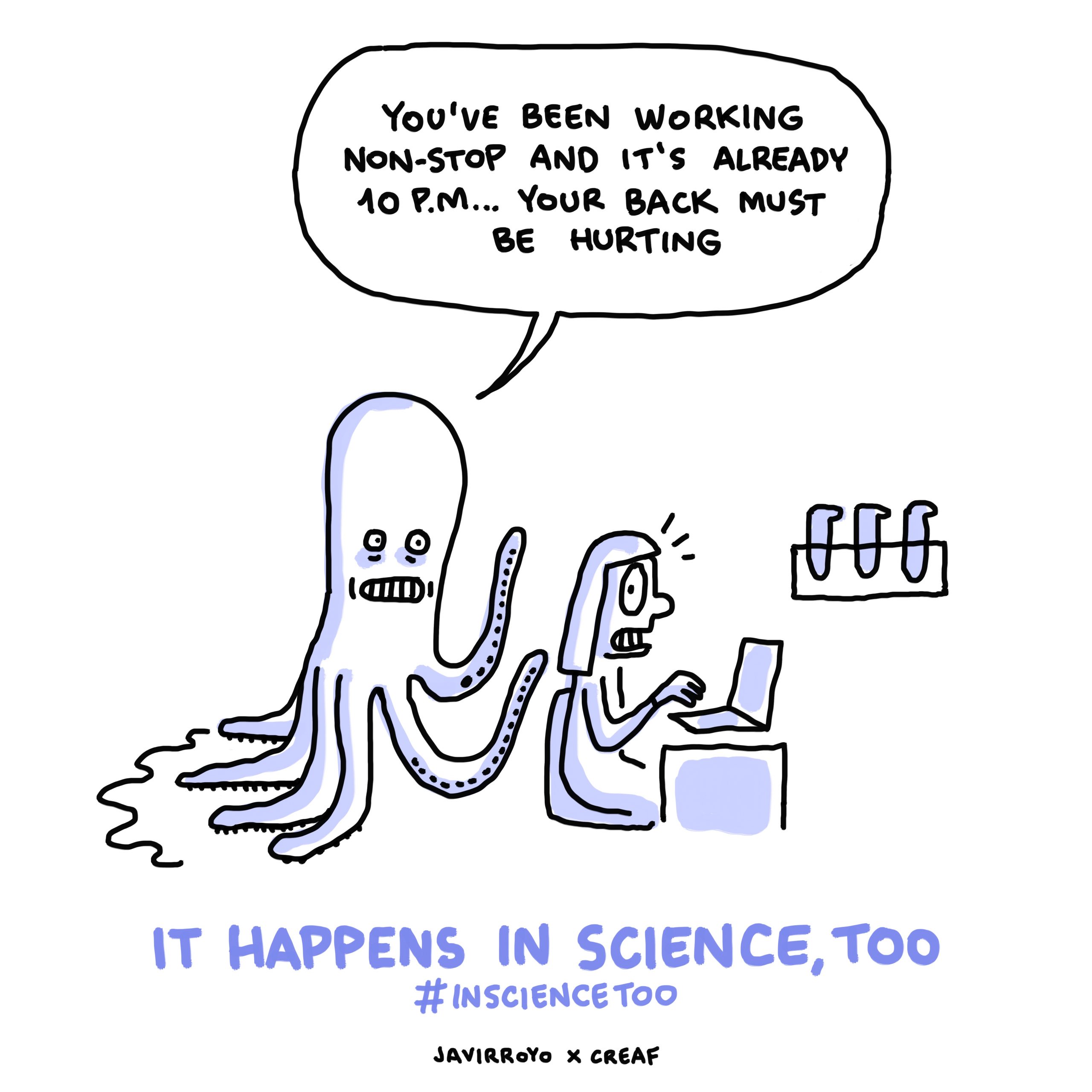
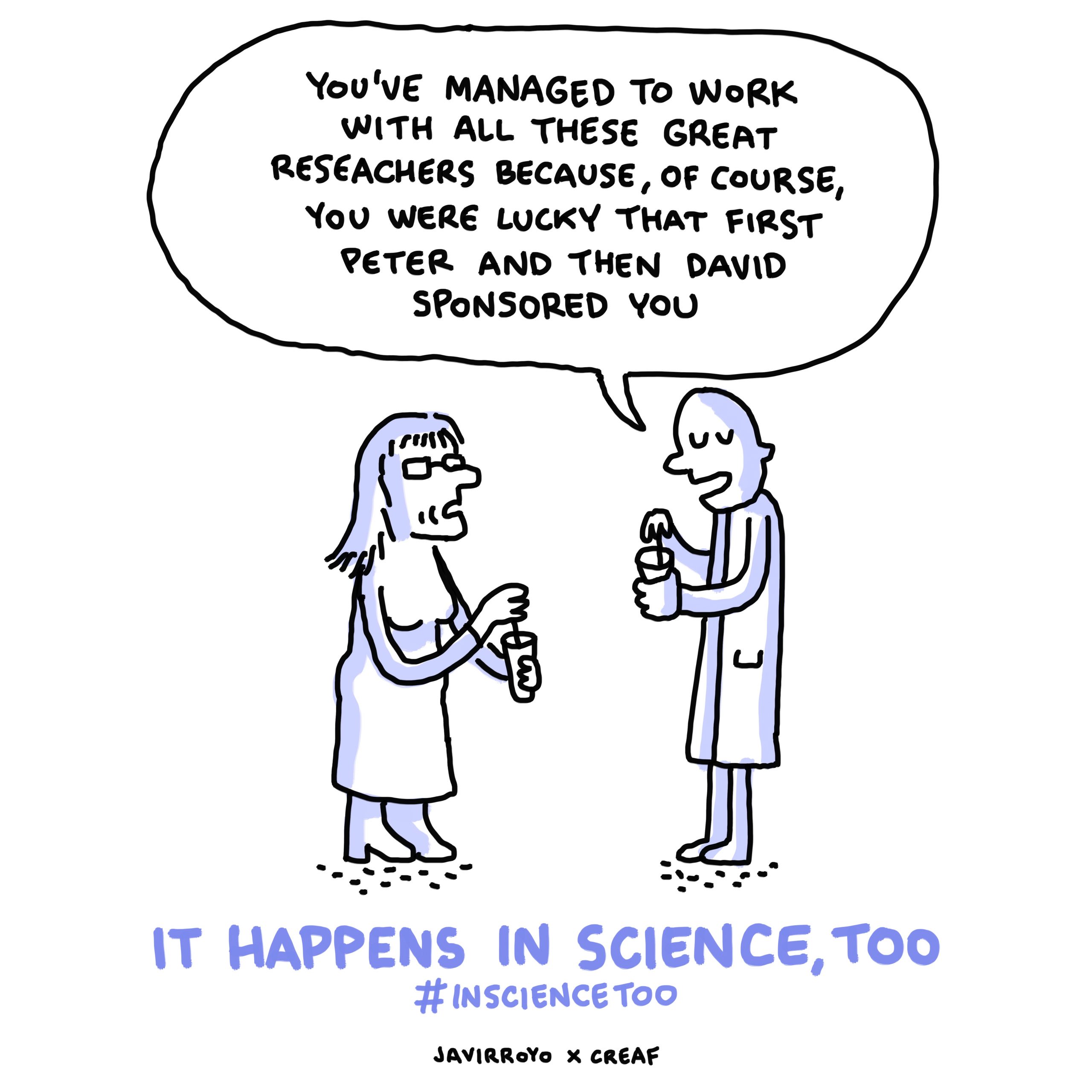
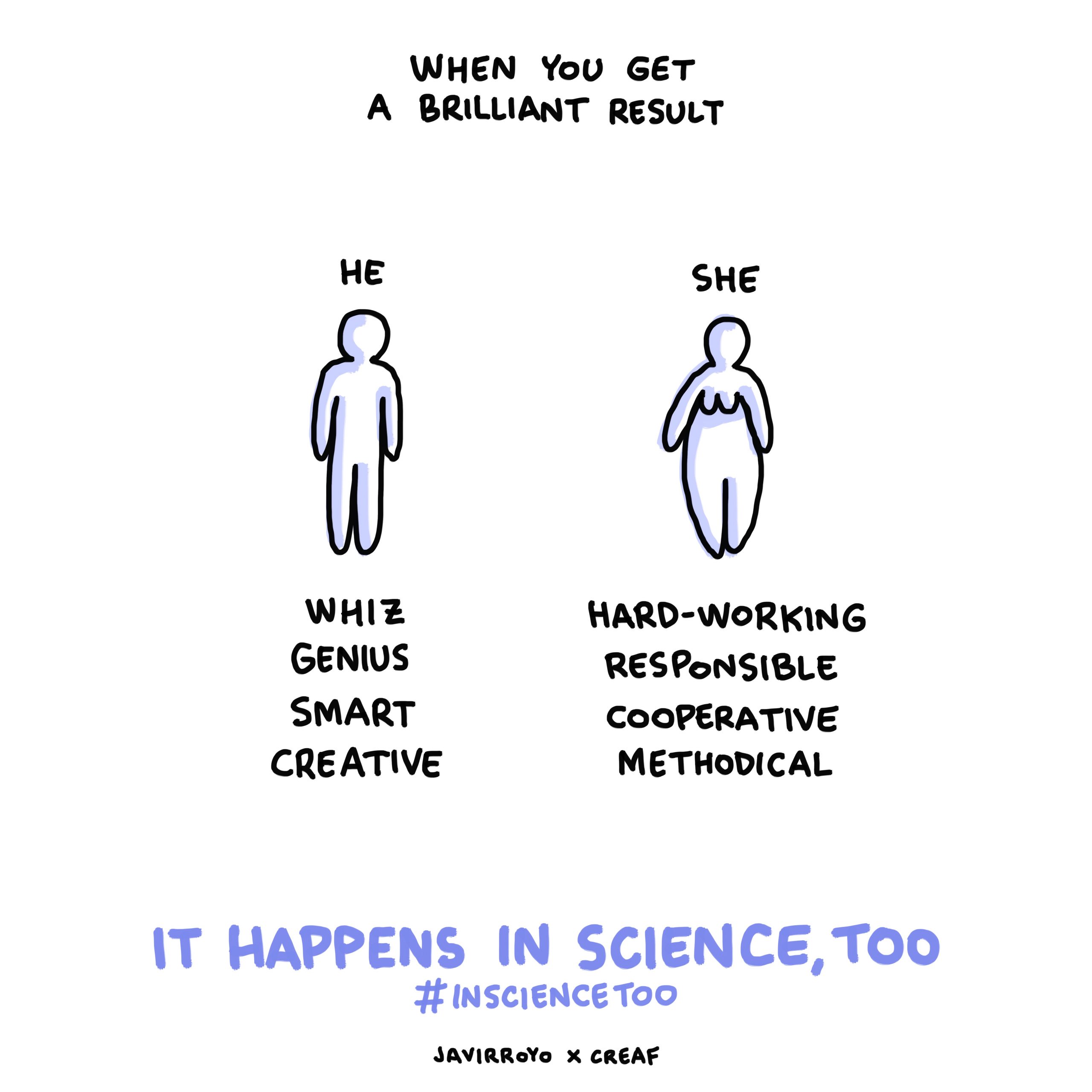
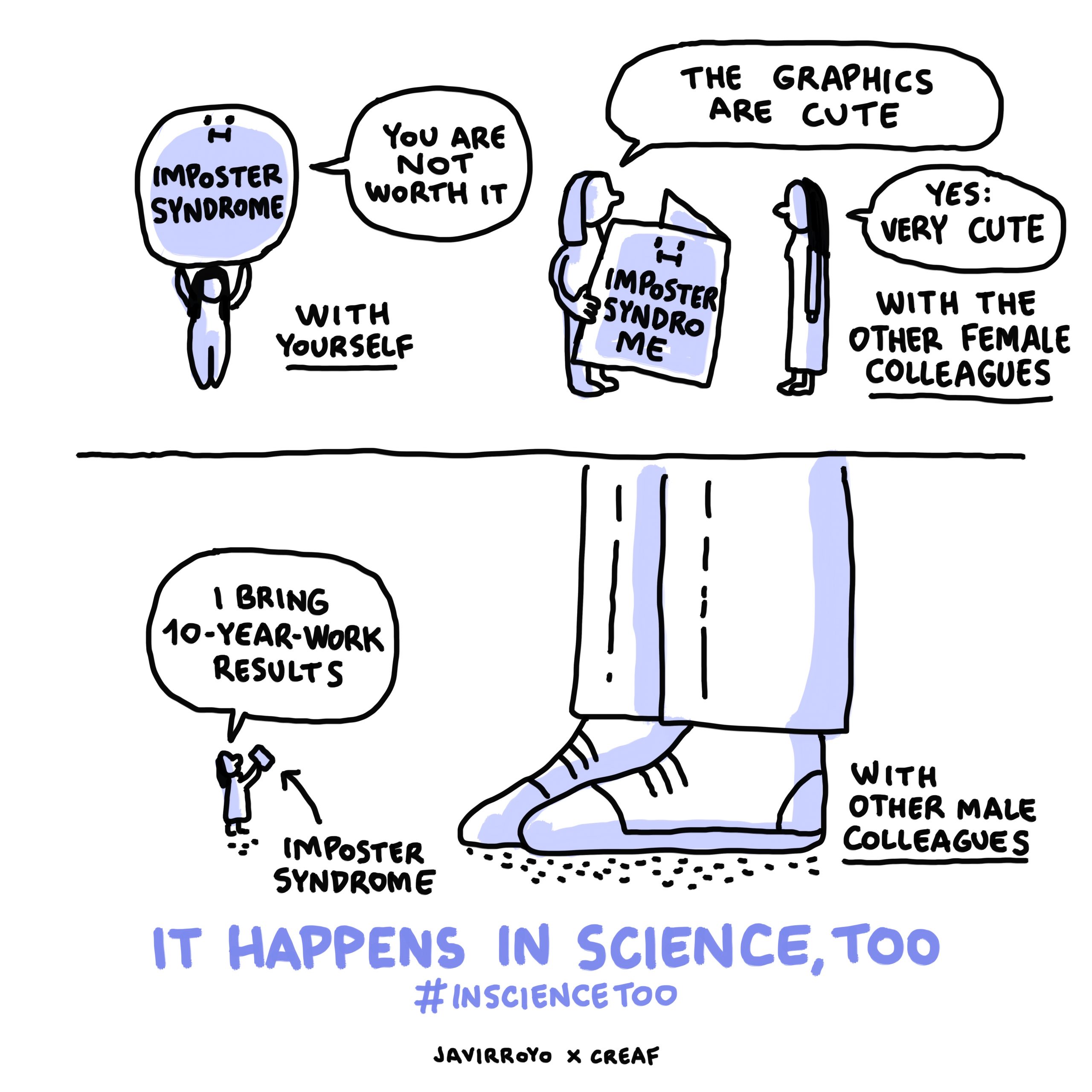
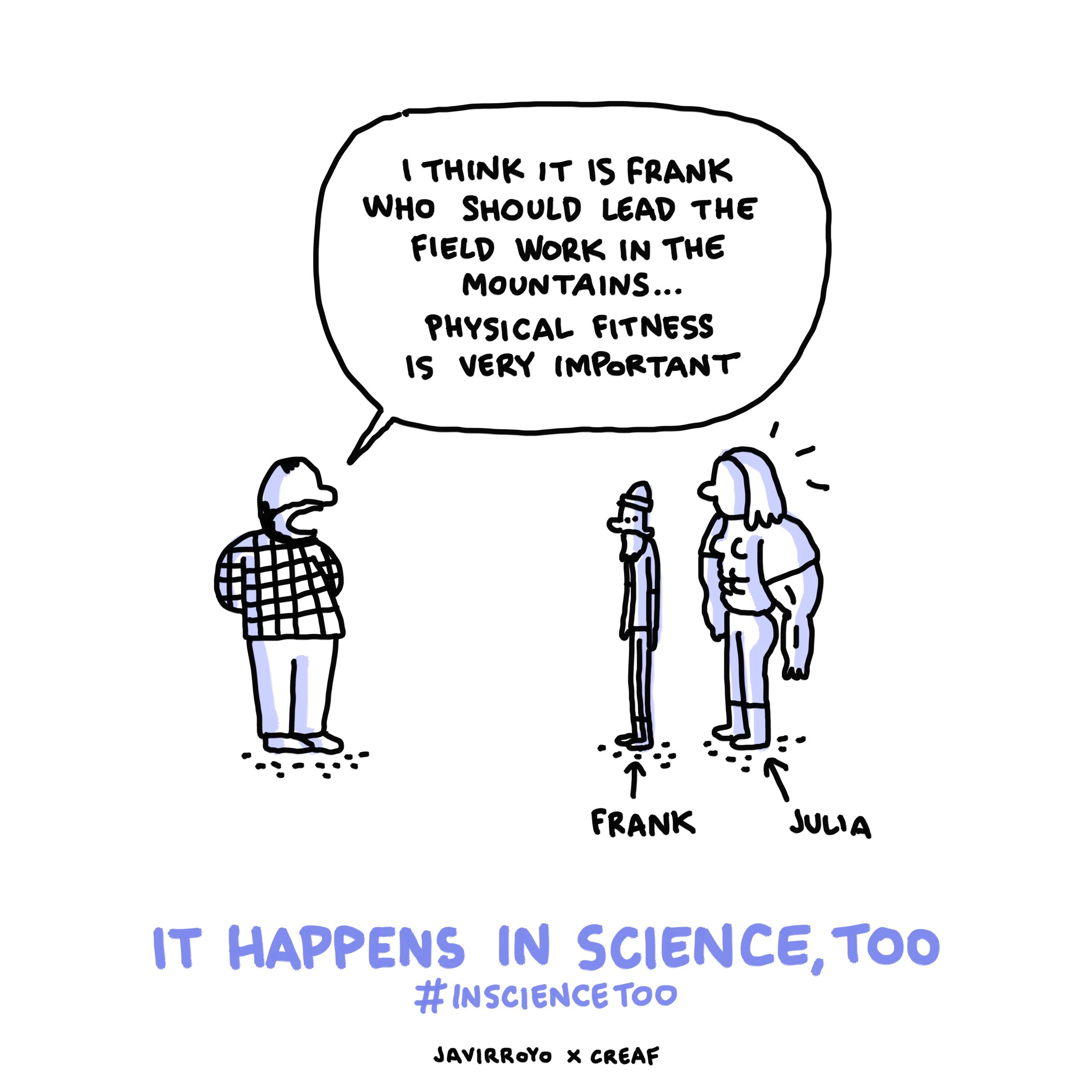
Anterior
Següent
Through 14 provocative illustrations, CREAF and Javier Royo are spotlighting women’s real, first-person experiences of feeling invisible, overwhelmed by imposter syndrome or belittled by mansplaining. In some cases, they have been prejudged as scientists because of their gender; in others, they have been discriminated against and had their capacity for leadership called into question on the grounds of their physical condition, pregnancy or the family responsibilities they are assumed to have.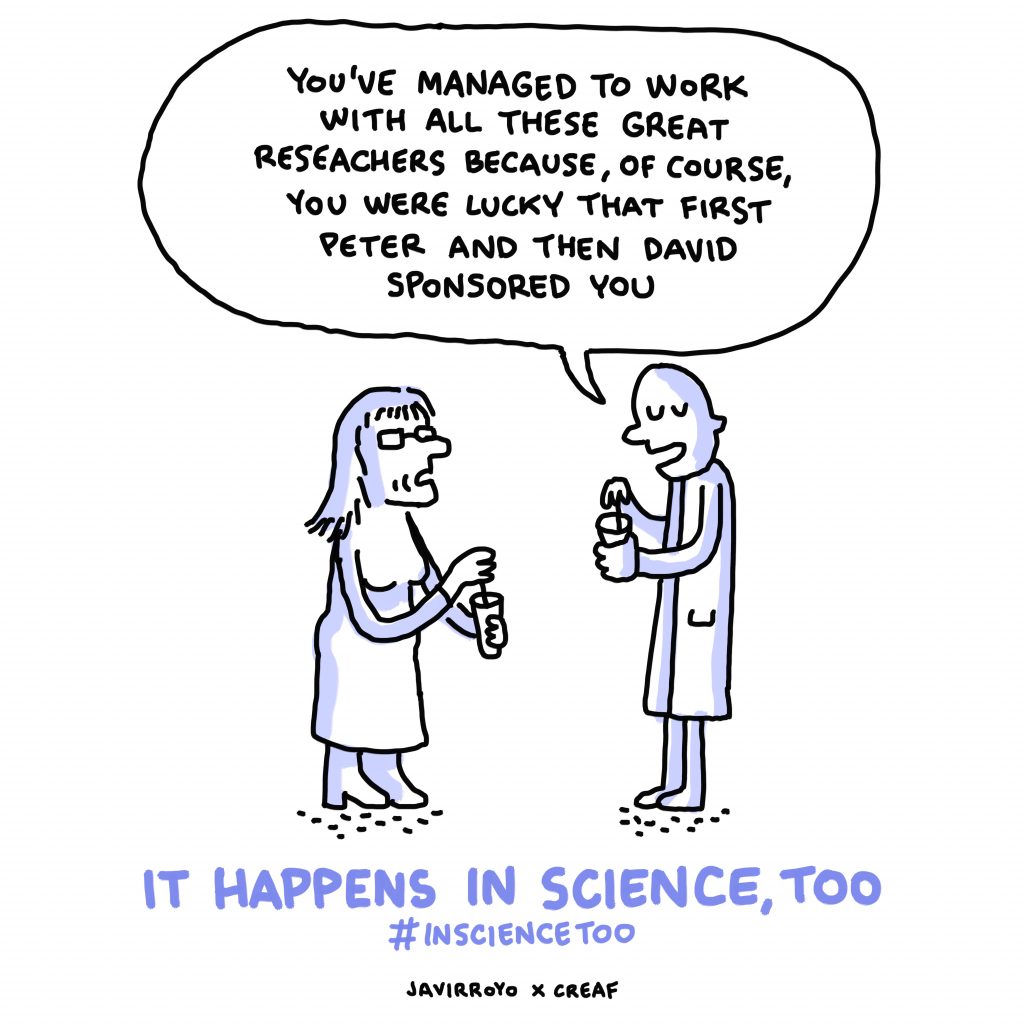
Led by CREAF’s Equality and Diversity Committee and Communication Department, the campaign is based on 47 real experiences, recounted anonymously by members of the Centre’s staff, from which the illustrator took inspiration. CREAF hopes that, in recognizing the discrimination that happens in the Centre itself, the campaign will be a first step towards doing away with the obstacles that women face in the research arena.
Imposter syndrome, prejudices and mansplaining
“I have such a strong case of imposter syndrome that I have often not even been aware of the inequalities I might have faced as a woman.” Clear and hard-hitting, that experience is one of those described for the campaign. Imposter syndrome is related to low self-esteem and its sufferers feel that their success is undeserved. While the condition is widespread in science, an article published in 2021 found that female scientists are more likely than male scientists to view themselves as imposters when success in their field is perceived to require talent or brilliance.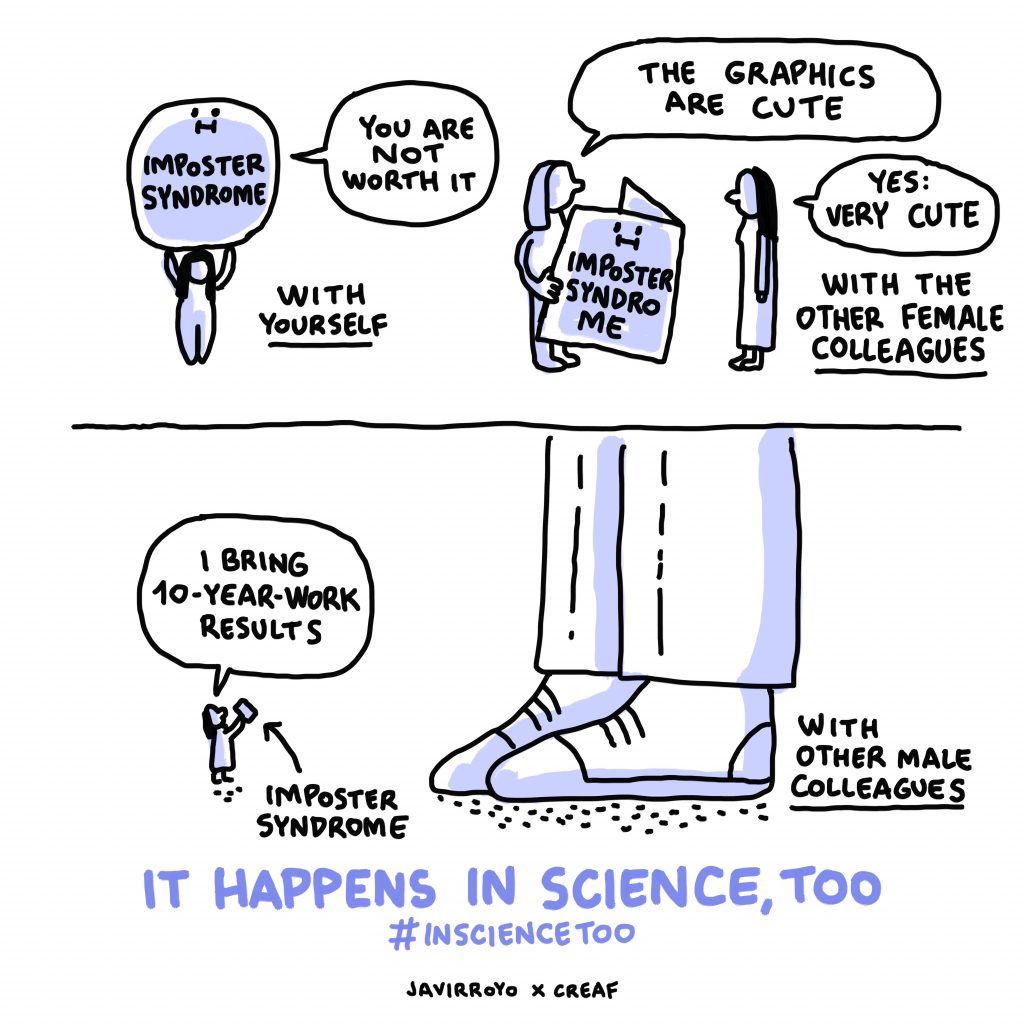
“People use the adjectives brilliant, smart and genius to describe my male colleagues, whereas we women are labelled hard-working, responsible and methodical. Female scientists seem to be characterized by generosity and dedication rather than by their intellectual or creative capacity.” The prejudices of others and those that women inflict on themselves feature in a number of the experiences described for the campaign. However, the experience referred to most frequently was mansplaining, involving a male scientist answering questions originally posed to a woman or explaining concepts to a female scientist in a patronizing, condescending way.
Does science promote a diverse research system?
As a centre that carries out research in the fields of terrestrial ecology, global change, Earth observation and biodiversity, CREAF has included a final illustration in the collection to highlight the need for and advantages of a system that is as diverse as possible. In all the other cartoons, #insciencetoo underlines the hostility of a production-oriented scientific system that is rife with prejudice and neither embraces nor promotes the diversity of scientists’ profiles. “As female ecologists, we know very well that biodiversity is key to keeping nature strong and resilient, but the same logic does not seem to be applied to the people who work in science,” says Teresa Rosas, who is responsible for talent and gender issues at CREAF. “Just as maintaining a rich variety of species in an ecosystem requires us to establish conditions conducive to their survival, we need to take urgent measures to increase diversity in the science arena; that entails creating inclusive work environments where both halves of the
population feel welcome,” she concludes.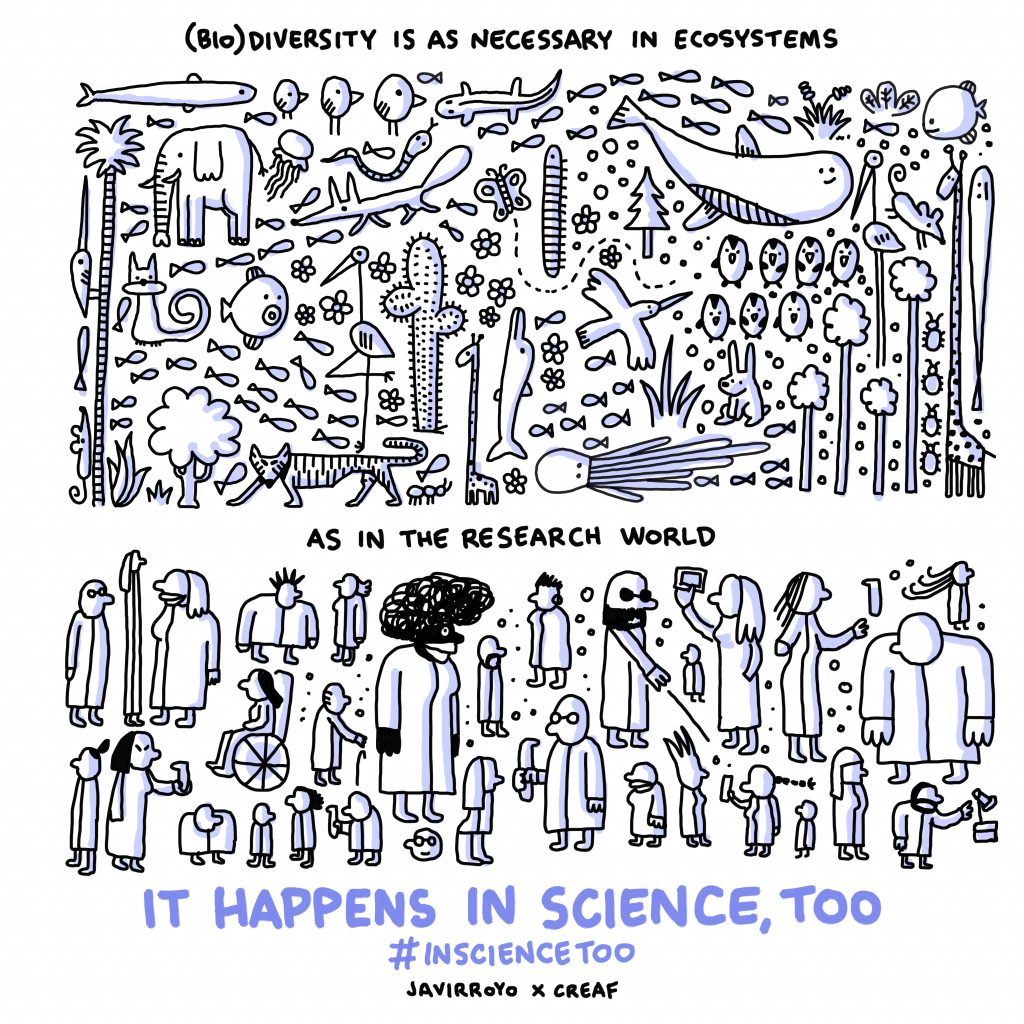
Do you like what we have done? Why not take a look at CREAF’s previous campaigns to mark the International Day of Women and Girls in Science?
#ICOMMIT: CREAF’s staff are committed to equality between men and women in the science community
11 women who have improved our knowledge of terrestrial ecology and evolution
Socially EQUAL, humanly DIFFERENT
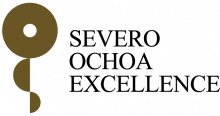
This action is part of the Severo Ochoa “ULandscape” funded in 2019 by the Agencia Estatal de Investigación of the Spanish Ministry of Science and Innovation to support Research Centres of Excellence.






